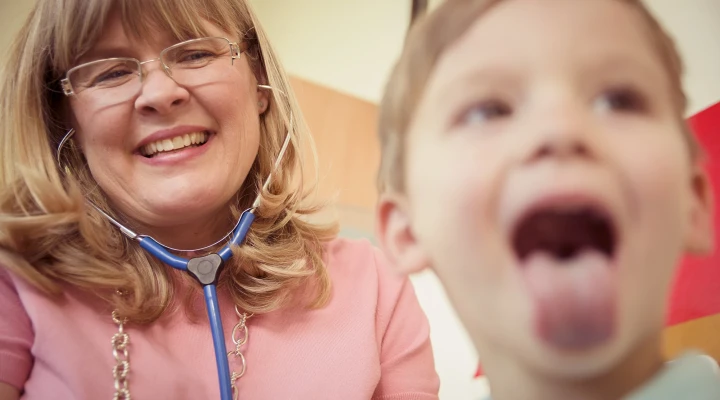Teenagers 12 to 17 were initially offered immunization in May of 2021, and now school-aged children in Hungary also have the option of being vaccinated. Frequently asked questions from our patients and the answers from Dr Kinga Jókay, Pediatrician, RMC Clinics.
- Is the vaccine very new?
Yes and no. The vaccine was produced by the same company that created Cominarty, the Pfizer/Biontech vaccine for adults in 2020. The shot needed to be tested in each age range separately, especially since the dosage was decreased this time. The United States FDA (Food and Drug Administration) approved the Pfizer/Biontech version meant for children 5 to 11 years of age on October 29, 2021. The EMA (European Medicines Agency) reviewed the data, and gave the go-ahead for use on November 25th, 2021.
Countries that are actively immunizing in this age group are: the United States, Canada, Israel, China, and Saudi Arabia. In the U.S. alone, 2.8 million children had received the jab within days of its approval. In the European Union, Austria decided to begin vaccinating with Pfizer’s low-dose covid vaccine even before the EMA endorsement came through.
Children in Hungary have been offered the vaccine since Dedember 15th.
- Is Covid disease basically a problem of older adults?
Although death rates from Covid disease for the elderly are still significantly higher than those for children, we now know that the pandemic has taken a considerable toll on children as well. Novel coronavirus can cause significant illness and death in the pediatric population. In addition, children can suffer long-term consequences of infection, like MISC (Multisystem Inflammatory Syndrome in Children) and long-Covid even if the initial infection was asymptomatic. The psychological burdens of isolation due to the pandemic, in particular depression and anxiety, are increasingly common and worrisome. It is of utmost importance for children that Covid infection and sequelae caused by Covid be prevented.
- Why should children be immunized?
Vaccinating the pediatric population can prevent death, illness and suffering in the children themselves. Perhaps even more crucial is the reduction of the spread of the infection among more vulnerable groups, like the immunosuppressed, the chronically ill, and the elderly.
- Is Covid infection common among those under 18?
During the fourth wave, children comprise 25% of new Covid cases in the United States. In Germany and the Netherlands, this number may be as high as one out of two.
- Are there differences between the adolescent and the school-aged formulation?
The only company with an approved vaccine for those under 18 years of age at the writing of this article is Pfizer/Biontech. Children 5 to 11 should receive 0.2 ml containing 10 micrograms of the mRNA vaccine, into the muscle, twice, three weeks apart. The low dose version is in an orange capped vial.
Teenagers 12 to 17 receive the same vaccine as adults. This is a purple or gray capped vial, containing 30 micrograms of vaccine in a 0.3 ml volume that is injected into the muscle of the upper arm. The timing is identical: 2 injections, 3 weeks apart.
- Are there side effects to the vaccine?
Yes. Any medicine which has an effect, also has side effects. The most common untoward reactions have been short-lived: pain at the injection site (71%), fatigue (39%) and headache (28%). Fever occurred in only 6.5% of the study group. To date, no serious reactions have been reported in the 5 to 11 year old age range. Adolescents reported significantly more fatigue, headache, muscle pain and fever than their younger counterparts.
- Do the risks of Covid infection outweigh the risks of the vaccine?
Decidedly yes.




